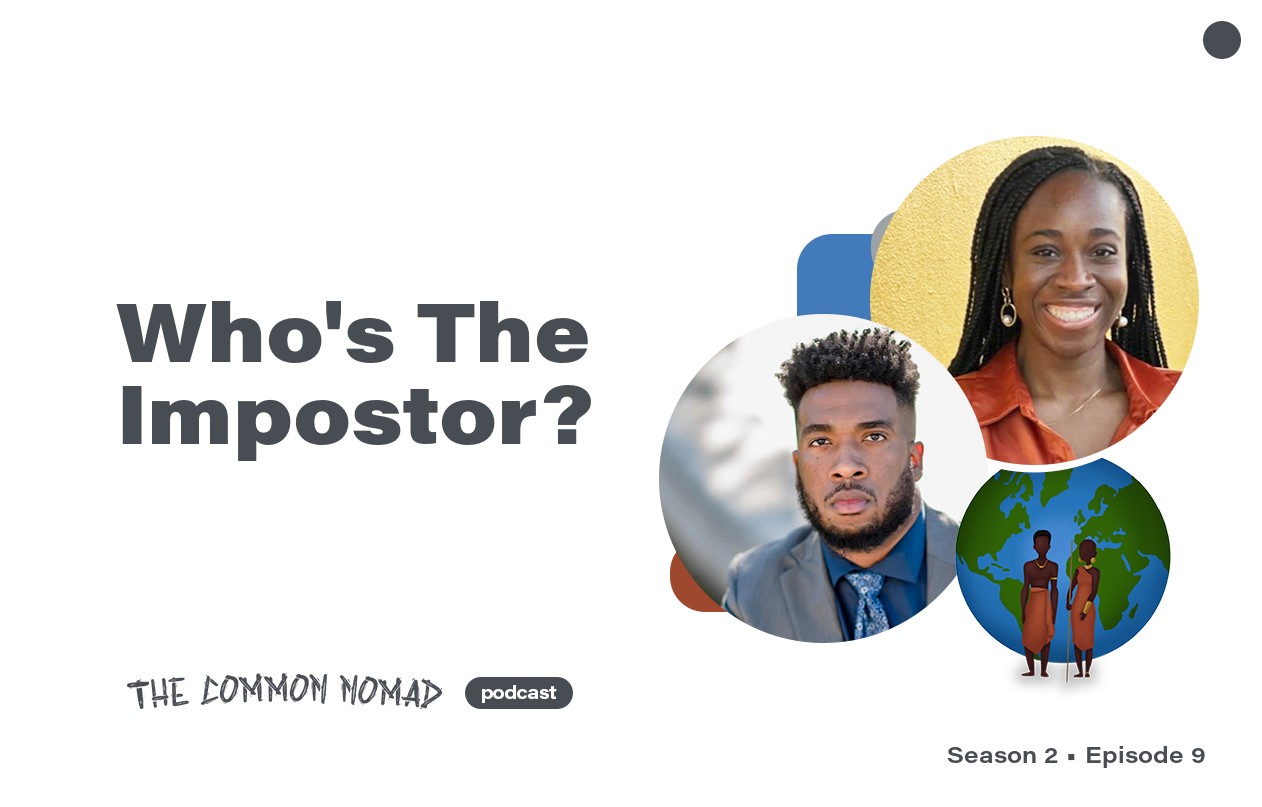
Who's The Impostor?
Who's The Imposter? An Episode recap touching on Imposter Syndrome
While much of the conversation centered around professional settings, the discussion naturally extended to the realm of personal relationships and friendships. In this blog article section, we explore the insights from the podcast and offer practical tips for overcoming imposter syndrome within the context of friends and social circles.
The episode highlighted how imposter syndrome, characterized by feelings of inadequacy and unworthiness, is often fueled by the toxic habit of comparison. Scylla and Edward emphasized the detrimental impact of constantly measuring oneself against others, whether in terms of achievements, relationships, or appearances. This rings especially true in the context of friendships, where the allure of comparison can lead to feelings of inferiority and discomfort within social groups.
Edward passionately shared his personal approach to combating comparison from an early age, emphasizing the importance of focusing on personal strengths and accomplishments instead of succumbing to the trap of comparing oneself to others. His experience serves as a beacon of hope for those grappling with imposter syndrome in their friendships, highlighting the power of internal competition and self-appreciation.
Scylla further accentuated the role of imposter syndrome in interpersonal dynamics, shedding light on the prevalence of feeling undeserving of the love, respect, and support received from friends. She emphasized the need to remove the element of comparison and excessive pressure in social contexts, advocating for a more realistic and forgiving approach to personal connections.
Navigating Imposter Syndrome in our own self
So, how can individuals navigate through the maze of imposter syndrome within friendships? Here are a few actionable strategies drawn from the insights shared by The Common Nomad hosts:
1. Embrace Authenticity:
Instead of striving to fit a predetermined mold or constantly seeking validation from friends, prioritize authenticity in your interactions. Embrace your unique personality, quirks, and perspectives, and let go of the need to conform to an idealized image.
2. Celebrate Personal Milestones:
Whether it's a personal accomplishment or a small victory, celebrate your own milestones without measuring them against the achievements of your friends. Recognize and appreciate your progress, no matter how big or small it may seem.
3. Practice Self-Compassion:
Be kind to yourself, especially in moments of self-doubt. Combat the critical inner voice with self-compassionate affirmations, acknowledging that mistakes and insecurities are part of the human experience.
4. Build Supportive Networks:
Surround yourself with friends who uplift and encourage you, fostering a supportive environment where imposter syndrome finds little room to thrive. Cultivate friendships based on genuine connections and mutual respect.
5. Seek Validation from Within:
Instead of constantly seeking external validation, work on building your own sense of worth and confidence. Recognize that your value extends beyond external achievements and is grounded in your inherent worth as a person.
Conclusion:
By integrating these strategies into daily interactions and relationships, individuals can gradually dismantle the barriers erected by imposter syndrome and cultivate a space of self-acceptance within their friendships.
The Common Nomad podcast delves deep into the intricacies of imposter syndrome, unraveling its presence in both professional and personal spheres. The insights shared by Scylla and Edward Fultz serve as a guide for individuals navigating the complex terrain of comparison and self-worth within their friendships. With a dedication to embracing authenticity, celebrating personal milestones, and practicing self-compassion, one can conquer imposter syndrome and foster a supportive, nurturing environment within their social circles.
As The Common Nomad podcast concludes, we encourage listeners to engage in open conversations with friends, sharing experiences and strategies for overcoming imposter syndrome and fostering a culture of self-acceptance and mutual support within their friendships.
Remember, in the journey of self-discovery and growth, the most liberating discovery is realizing that you are enough, just as you are.
This blog article section is a reflection of the insights offered in The Common Nomad podcast episode, “Who's The Impostor?”, and aims to provide actionable steps for overcoming imposter syndrome within the context of friendships.

